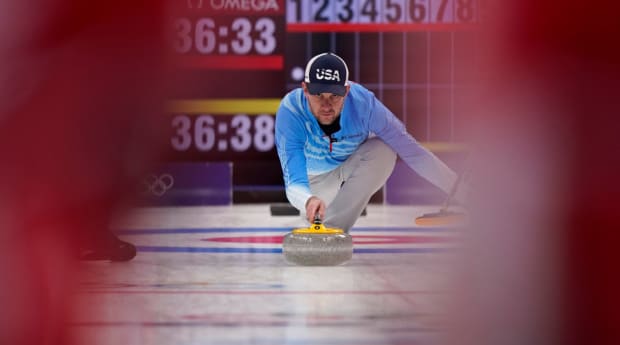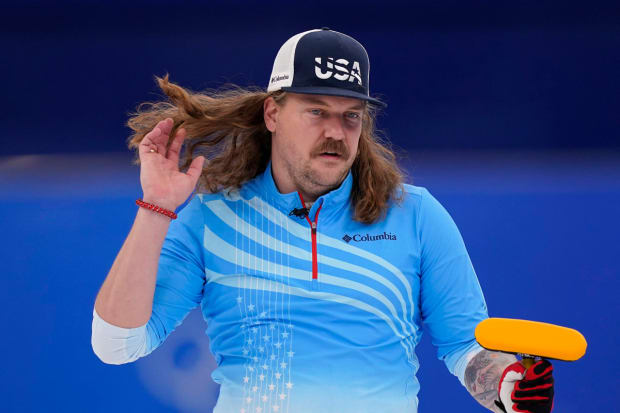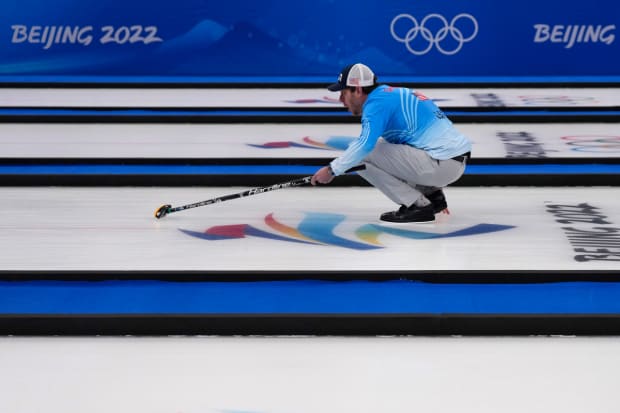BEIJING – This was an Olympic curling disappointment, if you believe in such things, but life is a lot more fun if you don’t. You might remember the United States men winning gold medals and a few hundred thousand hearts in PyeongChang in 2018 with their let’s-just-have-some-fun approach. They lost the bronze medal match here Friday. They did not forget their approach.
If you loved John Shuster and the boys four years ago, you should love them today. Shuster, you might recall, had a history of … well … succumbing to Olympic pressure, and midway through the 2018 Olympics, he was still succumbing. Then he decided to stop worrying. What happened next was magical and sweet and wouldn’t really work in a sport with $30 million salaries and $50,000 season tickets. It was a quirky delight: A bunch of friends getting hot and winning Olympic gold.

Brynn Anderson/AP
Another gold would have been an amazing encore. If you think it was necessary, you missed the whole point of what happened in PyeongChang. Of course, everybody wants to win. But not every sport is the same. We don’t need to treat curling like the NFL Playoffs.
Team Shuster won and had fun in Korea—and they won because they had fun. They brought that same attitude here.
“I don't think it had to do with winning gold,” Shuster said. “My approach to curling tournaments now is I'm just out there enjoying the process with my teammates, trying to do everything we can to win and not living and dying on the results. That started halfway through Korea, and it's something that hasn't left me, and it's not gonna leave me for the rest of my life.”
American Matt Hamilton—the heavily tattooed, long-haired, mustachioed guy you might have forgotten and then recognized immediately—said, “I definitely felt more comfortable in the first shot of that tournament. But you know, the sheet size is the same. The rocks have the same weight.”

Brynn Anderson/AP
The Americans really came a lot closer to repeating their win than you might think. In the semifinals Thursday night, they lost an epic game against Great Britain, which might have the best team in the world. Then, in the bronze medal match against Canada, the U.S. led 5–4 through seven ends before suffering a couple of tough breaks. By the time the 10th end began at the National Aquatics Center, the Americans were underwater. They lost 8–5.
“[Great Britain's] Bruce Mouat and [Canada’s] Brad Gushue are the No. 1 and No. 2 ranked teams in the world,” Shuster said. “They're gonna give you maybe five or six cracks to get them during the course of the game. I mean, they’re just great curling teams.”
As he pointed out: So is Team Shuster.
Thanks to the U.S.’s win in 2018, curling went from a niche sport that very few Americans understand to a niche sport that slightly more Americans understand. Shuster has now achieved what might be the ideal level of celebrity: Enough people know who he is for it to be fun, but it’s hardly a bother.

Nariman El-Mofty/AP
He said he is looking forward to “going on a date with my wife, going fishing with my kid and my dad, playing some video games with my other kid, kicking a soccer ball around when the snow melts … watching my kids swim at the sectional swimming.” This is the Shoostie that America needs.
“If you have people you enjoy traveling with and hanging around with, the curling is a bonus,” Shuster said. “And winning in curling is even a bigger bonus … I told myself before we came here, if we prepared well, played hard and played great, had great attitudes . . . enjoyed being here with our teammates, like, whatever happened was going to be just fine.”







